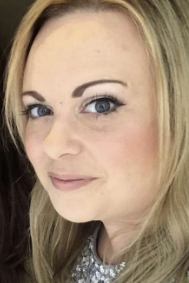
Qualifications:MA. Psychoanalytic Psychotherapy, H. Dip. Psychotherapy, Dip. Counselling and Psychotherapy, Cognitive Behavioural Therapy
Lisa Andersen
Academic Background: Lisa graduated in 2013 from Independent Colleges with her Master’s degree in Psychoanalytic Psychotherapy. Prior to this she achieved a Higher Diploma in Psychotherapy and a Diploma in Counselling and Psychotherapy. She recently received a Diploma in Cognitive Behavioural Therapy and is currently pursuing a qualification in Forensic Psychotherapy.
Work Experience: Lisa’s work experience is extensive. She has been in private practice for ten years working with adults on a one-to-one basis. She has also worked for various Mental Health organisations where she gained a range of experience in numerous different approaches. She has worked as a Psychotherapist for My Mind Mental Health Matters, before dedicating most of her career to private practice. She most recently worked as a Corporate Psychotherapist/Wellness Coach for Spectrum Mental Health. During her time there, her role was to provide support for agents dealing with sensitive content, for companies within Facebook such as WhatsApp. Her approach was pro-active, guiding and assisting agents on a monthly basis. She currently works full-time as an EAP Case Manager for Spectrum life, where she provides brief solution-focussed therapy and referral if necessary to employees from over 1250 companies in Ireland and the UK. She has also volunteered with AWARE and H.O.P.E (Hope Hands on Peer Education) Addiction Services as well as completing training in ASIST – Applied Suicide Intervention Skills.
Underpinning Philosophy: Lisa believes that each client is unique and so therefore she uses a range of different approaches such as CBT or short-term counselling depending on the clients needs. Her main approach however is Psychoanalytic, an in-depth, non-directive and at times intensive, talking therapy. The approach is built on a trusting therapeutic relationship where emotional conflicts and inner struggles are worked through in a strictly confidential, and non-judgemental space. Psychoanalytic Psychotherapy offers to treat both the distress, as well as the underlying sources of that distress, which are often at times unknown to the person. It works with patterns of thinking, feeling, coping, and relating which the client has developed throughout their life, and which are often at times uncommunicative and outside of awareness. Using the method of ‘free association’ the client is encouraged to speak about anything that comes into their mind, no matter how unimportant or frightening they make think it is. Both the Psychotherapist and the client work together to develop insight and an understanding into oneself, which results in underlying issues being brought to attention. In turn, this enables the client to learn and understand what motivates current behaviours, outlooks, and emotional turmoil’s they may be experiencing in their lives.

